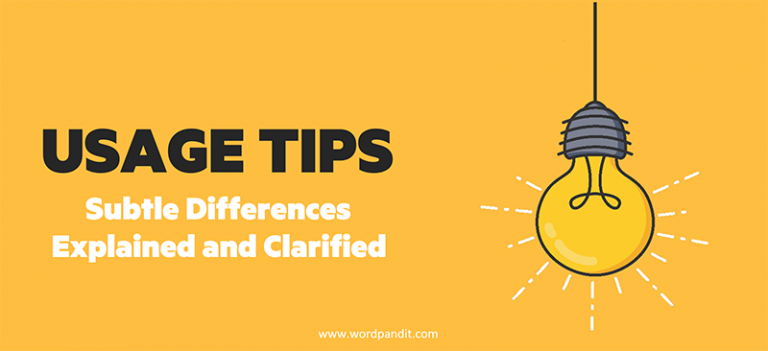Historic vs. Historical: Understanding the Subtle Difference ✨📚
Have you ever felt confused 🤔 about whether something is historic 🏆 or historical 📜? You’re not alone. These two words 📖 seem almost interchangeable 🔄, but they carry distinct meanings 🧩 that are crucial to get right ✅, especially when describing an event 🗓️ or artifact 🏺. Let’s clear up the confusion 🤯 in an engaging 💡, straightforward way 📌 so that you’ll never mix them up again ❌.
Imagine you’re standing in front of the Taj Mahal 🕌, about to give a speech 🎤. You’d probably want to call this moment historic 🌟, meaning it’s significant 🎉 and worth remembering 📝. But if you’re just talking about the historical facts 📚 of how the Taj Mahal was built 🏗️, you’re simply referring to details 📜 related to history ⏳. See the difference? 🤓 “Historic” is all about significance 🚀, while “historical” is about anything connected to history 🕰️.
To make things even clearer 🔍, think about a time 🕰️ when you heard the phrase “a historic victory” 🏅 in sports 🏀 or politics 🗳️. This victory isn’t just any win—it’s one that will be remembered for years to come 📆. On the other hand, if you’re reading about the history 📖 of an ancient civilization 🏺, you’re delving into historical information 📜. It’s all about context 🗂️ and the importance we assign to the event or subject 🧠.
Defining Each Word 📖
Historic 🏆: Refers to something that is important in history 📜, significant enough to be remembered 💡. Pronounced as: hɪˈstɔːrɪk.
Example ✏️: The signing of the Declaration of Independence 📝 was a historic moment 🌟.
Synonyms 🔄: momentous 🌠, significant 🏅.
Antonyms 🚫: ordinary ⚪, unremarkable ⚫.
Historical 📜: Relates to anything concerning history ⏳, regardless of its significance 🤷♂️. Pronounced as: hɪˈstɔːrɪkəl.
Example ✏️: He enjoys reading 📖 historical novels 📚 set in the 18th century 🕰️.
Synonyms 🔄: past ⏳, ancient 🏺.
Antonyms 🚫: modern 🕶️, current 📅.
Etymology 📜🔍
Historic 🌟: Comes from the Greek word ‘historikos’ 🏛️, meaning ‘of inquiry’ 🕵️♂️ or ‘knowing by inquiry’ 🤓. Over time ⏳, it became associated with events 🌠 of great importance 🏅. The evolution 🔄 of the word highlights ✨ its connection to moments 🕰️ that have shaped human progress 🌍 and left a lasting impact 🌟.
Historical 📜: Also stems from ‘historikos’ 🏛️, but focuses more broadly 🌍 on anything connected 🔗 to history ⏳, without the weight ⚖️ of significance. It’s more about context 🗂️ and content 📄 rather than importance 🌟, encompassing everything that relates to the past ⏳, from major events 🏆 to minor details 📝.
Examples to Remember 📌
To make this stick 🧠, here are a few examples ✏️ that show the distinction clearly 🔍:
- The moon landing 🌕 was a historic achievement 🏆 for humanity 🌍.
- She wrote ✍️ a historical article 📜 detailing the daily life 🏰 of medieval knights ⚔️.
✨ Remember: Historic has an impact 💥. It’s an event 🗓️ or moment ⏳ that shaped the future 🌍 in some way. Historical just means it’s related to history ⏳, no matter how important it was 🤷♀️.
Comparison and Contrast ⚖️
People 👥 often confuse 🤔 historic and historical because they both deal with the past ⏳, but they serve different roles 🎭. Use historic 🏆 when describing something that stands out 🌟 in history 📜—the kind of thing people would talk 💬 about years later 📆, like the first manned mission to Mars 🚀 (one day, hopefully! 🌠). Meanwhile, use historical 📜 for anything that’s merely related to history 🕰️, like historical records 📄 or historical fiction 📖. A historic event 🏅 makes headlines 📰; a historical document 📄 ends up in archives 🗄️.
Contextual Usage 📝
- The historic speech 🗣️ by Martin Luther King Jr. 👑 inspired millions 🌍.
- This museum 🏛️ houses historical artifacts 🏺 from the Bronze Age ⚒️.
- The historic landmark 📍 is visited by thousands 👥 every year 📆, while the historical guide 📚 provides context 🔍 for why it is so important ✨.
Mnemonic Device 🧠
To help you remember 💭: “A historic event 🏅 is HUGE 💥.” Historic = Huge = Significance 🏆. Anything merely historical 📜 is related to history ⏳, but not necessarily huge 🤏.
Another trick 🎩 is to think of historical 📜 as being more neutral ⚖️. It’s a term that covers all aspects 🗂️ of history 📖, big or small 📏, without attaching particular importance 🏅 to any of them. Meanwhile, historic 🌟 has that extra weight ⚖️—something people will recall for generations ⌛.
Related Confusing Words 🤔
If you enjoyed 😊 learning about historic 🏆 and historical 📜, you might want to check out 🔍 other commonly confused pairs 🔄 like affect vs. effect ⚡, eminent vs. imminent ⏳, or principal vs. principle 📚. Understanding these differences ⚖️ can significantly enhance 💪 your writing ✍️ and communication skills 🗣️, helping you convey precise meanings 🎯.
Conclusion 🏁
By now ⏰, you should be able to confidently 💪 distinguish between historic 🏆 and historical 📜. Remember 🧠, historic events 🗓️ are extraordinary ✨ and worthy of remembrance 📝. In contrast, historical 📜 just refers to anything connected 🔗 to history ⏳, regardless of its significance 🤷♀️. You’re now equipped ⚔️ to use these words accurately 🎯—congratulations 🎉 on making this historic leap 🚀 in your vocabulary 📖!
Using the correct word 📝 can make a big difference ✨, especially in formal writing 🖋️ or storytelling 📜. Whether you’re writing an essay 📄, giving a presentation 🗣️, or simply telling a friend 👥 about an interesting fact 💡, knowing when to use historic 🏆 versus historical 📜 will help you communicate your ideas 💭 more effectively 📣. Words carry power 💪, and choosing the right one can elevate 📈 your message 🗯️.













